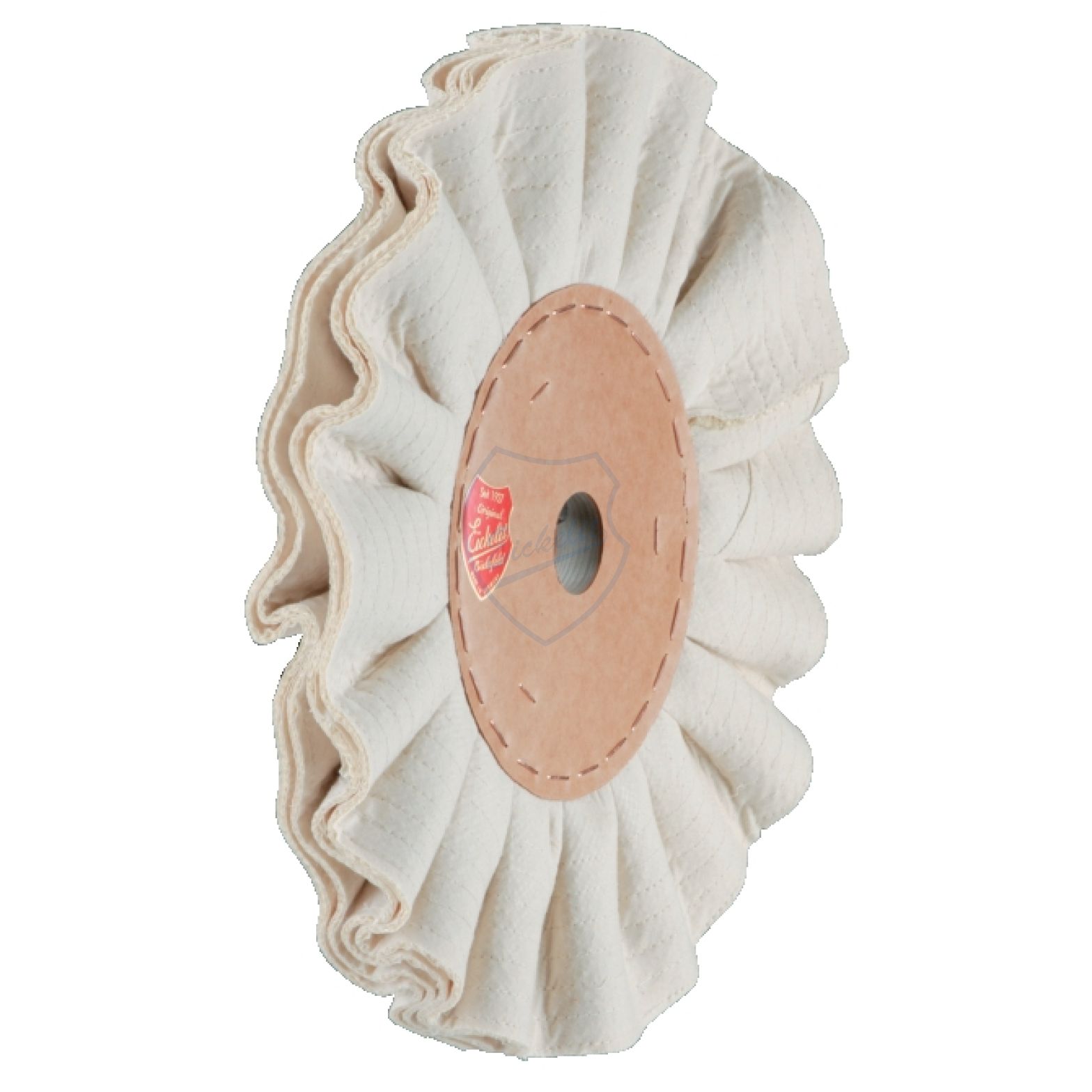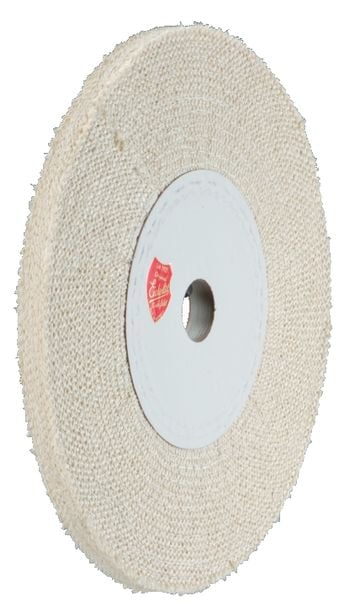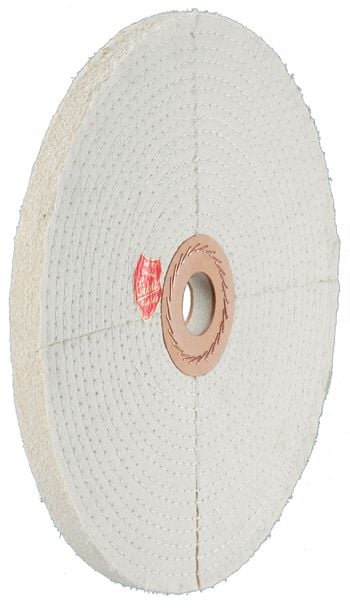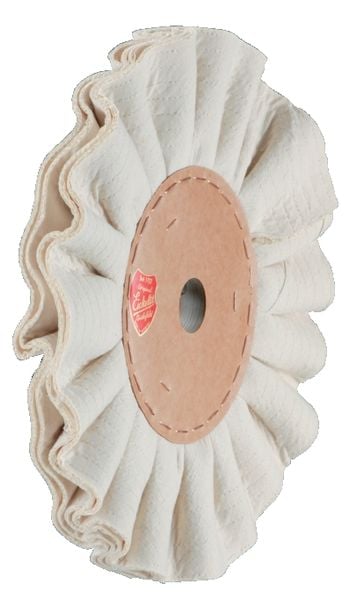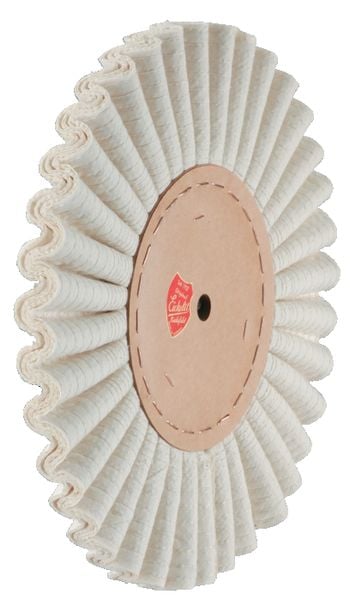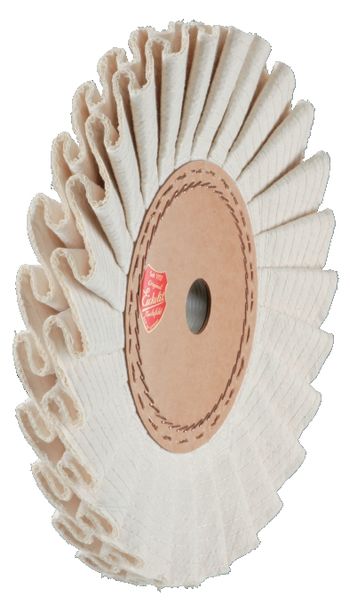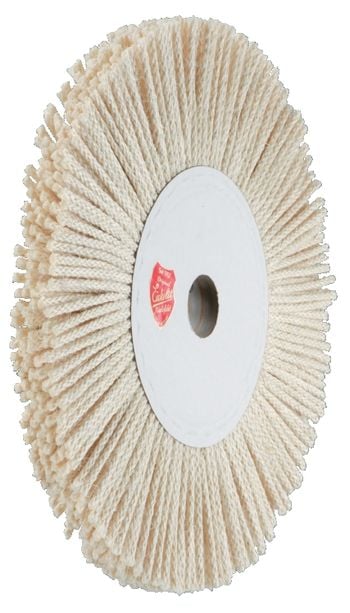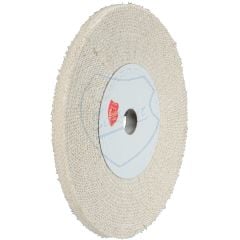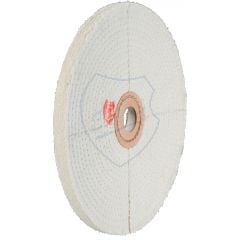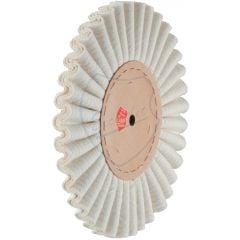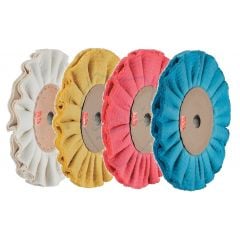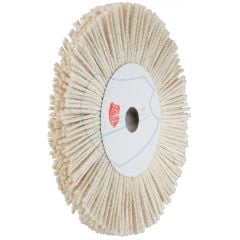Sisal-Cotton Ventilating Wheel SB-4 | 450 mm
Ventilating Pre Polishing Wheel
Diameter 450 mm
PRODUCT DESCRIPTION SISAL-Cotton SB-4 Ventilating Disc | 450 mm
EICKELIT SB-4 sisal nettle ventilating wheels are universal pre-polishing discs for effective surface smoothing of steel and non-ferrous metals on the polishing stand. With their folds, they have a cooling effect and are more flexible compared to SB-VR polishing discs. In contrast to more aggressive pure sisal discs, sisal cotton compound polishing discs are less abrasive and provide fine grinding and pre-polishing in just one operation. SB-4 pre-polishing discs provide matte to satin finishes. These are ideally suited for subsequent polishing steps up to a high gloss, but are widely further processed without additional surface finishing steps.
PRODUCT FEATURES
- Four layers of sisal fabric sewn tightly with cotton on both sides and secured with a steel ring
- Security stitching to a phenolic resin-reinforced hardboard core
- Individually calibrated for low-vibration concentricity and a smooth polishing finish
- Diameter 450 mm, thickness (core) approx. 25 mm
- Freely selectable bores 10 - 65 mm
- Polishing tool for the stationary polishing stand
- Vmax = 45 m/s, Umax = 1,900 min-1
SISAL-NETTLE COMPOUND
Sisal comes from global cultivation areas and is obtained from specific agave species. Sisal fibers are particularly resistant to physical and chemical influences. In addition, sisal is characterized by high toughness, tensile strength and high rigidity at the same time. This is why polishing tools made of sisal are particularly suitable for pre-polishing metals and especially steel.
We use a particularly long-fiber sisal with a dense plain weave for these EICKELIT sisal-nettle composite polishing tools SB-4. The fabric is first rotated at a 45° angle to the weaving direction and then covered with a light cotton nettle on both sides. These layers are then connected to each other with a fine cotton yarn at a seam distance of approx. 10 mm. From this carefully manufactured sisal-nettle composite we then produce our diverse variants of the EICKELIT SB-X polishing tools.
BORE HOLES
- We manufacture your desired bore individually for you and thus cover every bore diameter known to us for standard industrial polishing machines *
- If you need other bore diameters or special adapters (e.g. for hexagonal shafts, with keyways, etc.), we will be happy to produce them on request **
* Polishing discs drilled individually at the customer's request are non-prefabricated goods and cannot be exchanged or returned (Terms of Revocation)
** Observe safety regulations for the minimum diameter of drive shafts!
